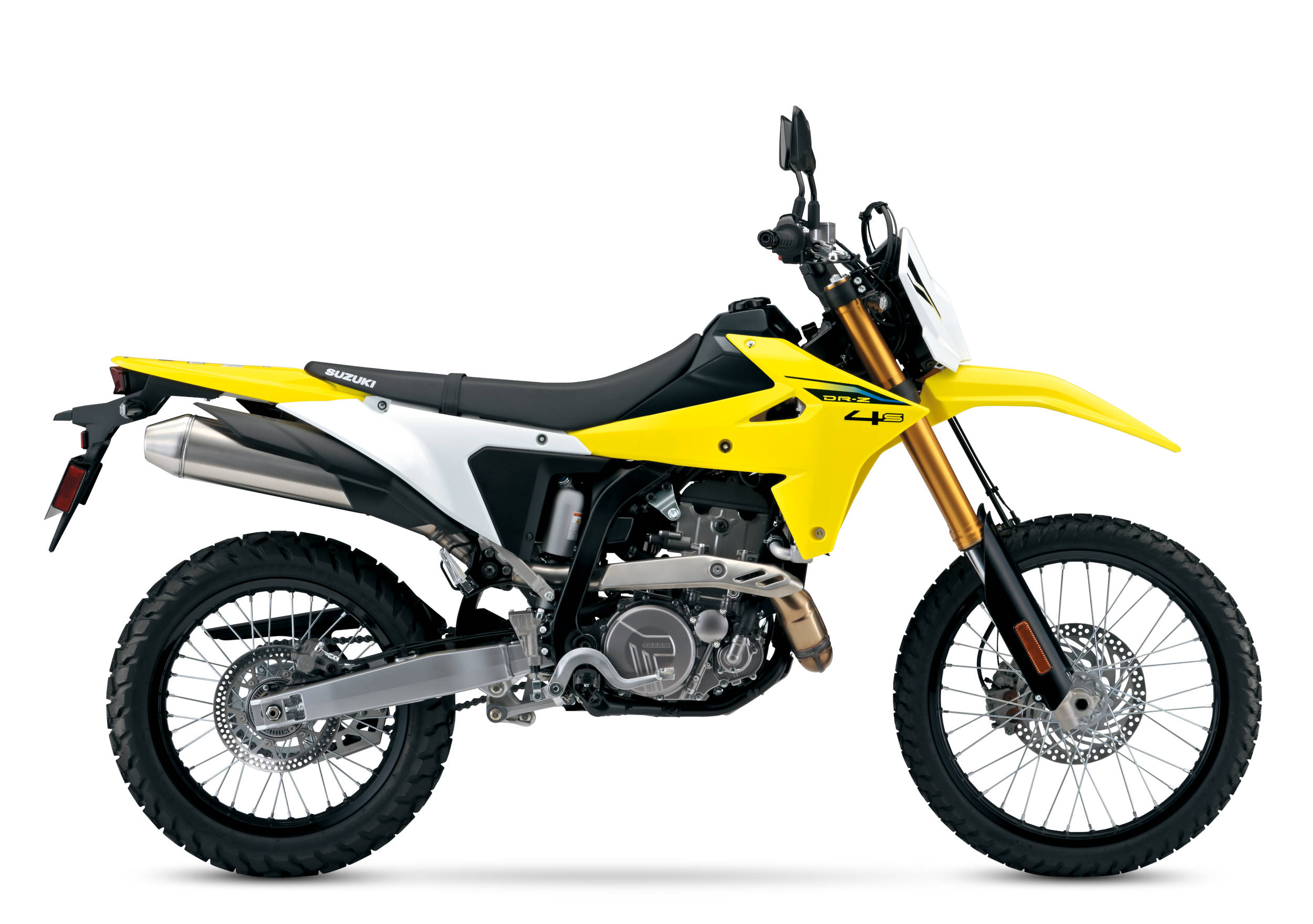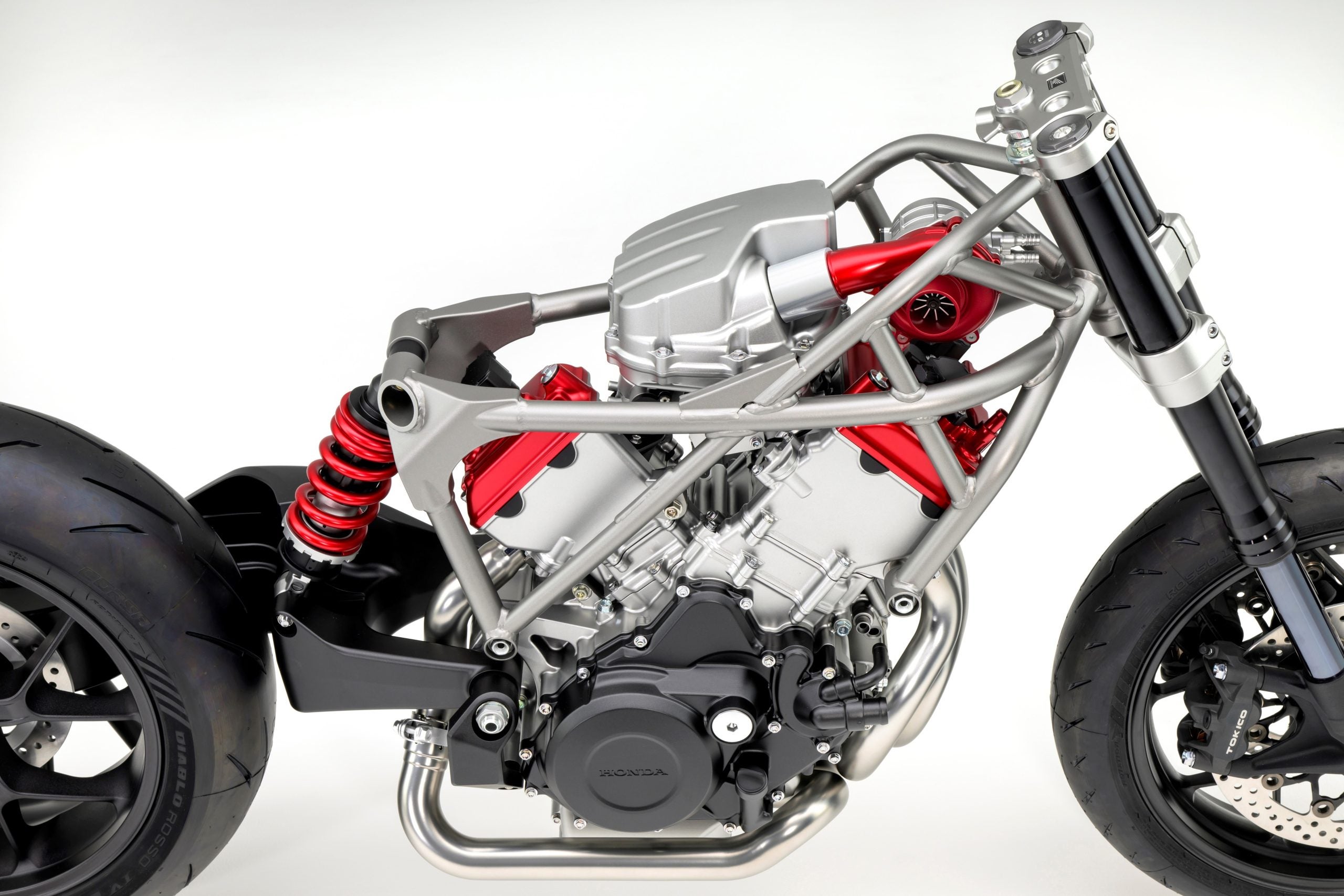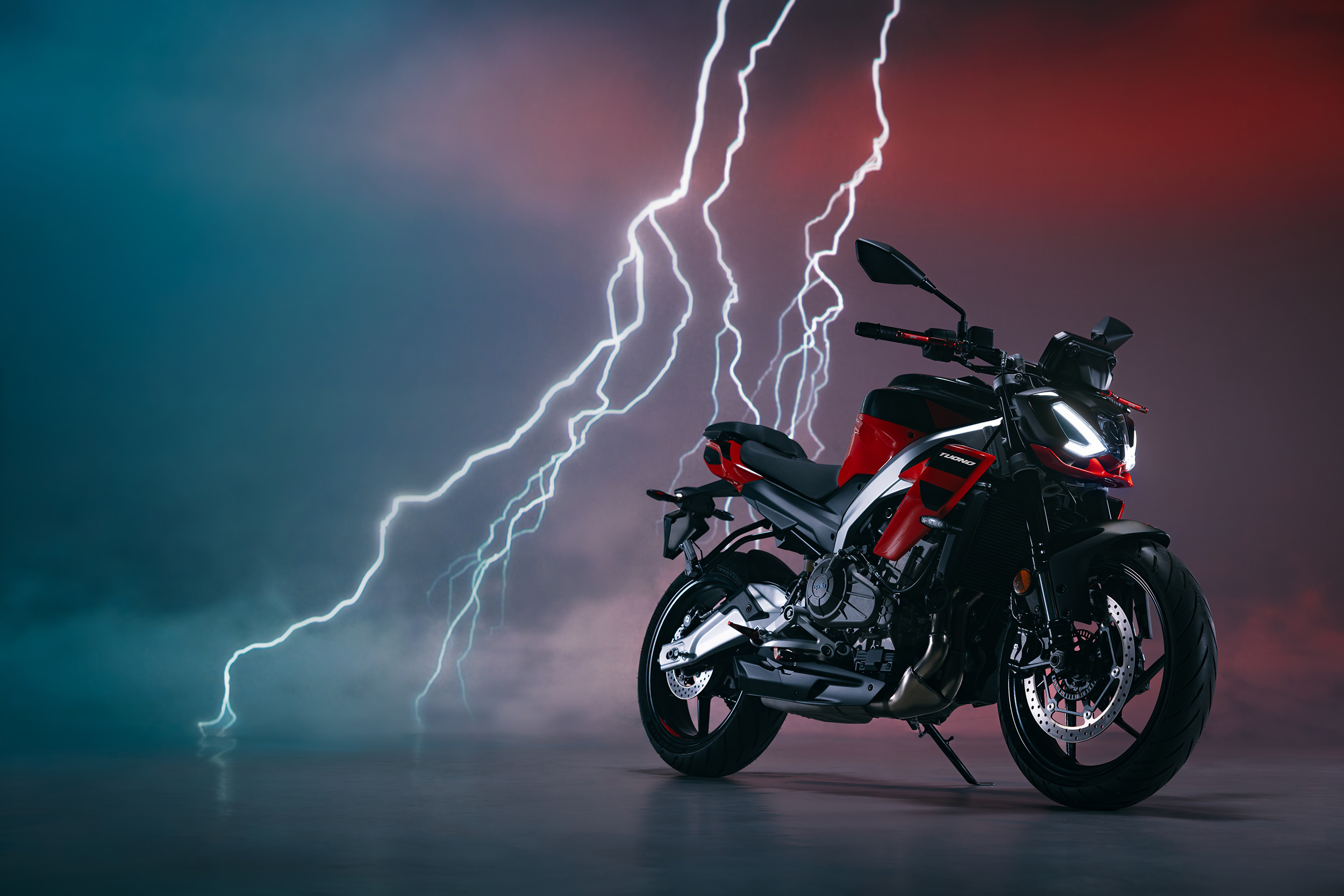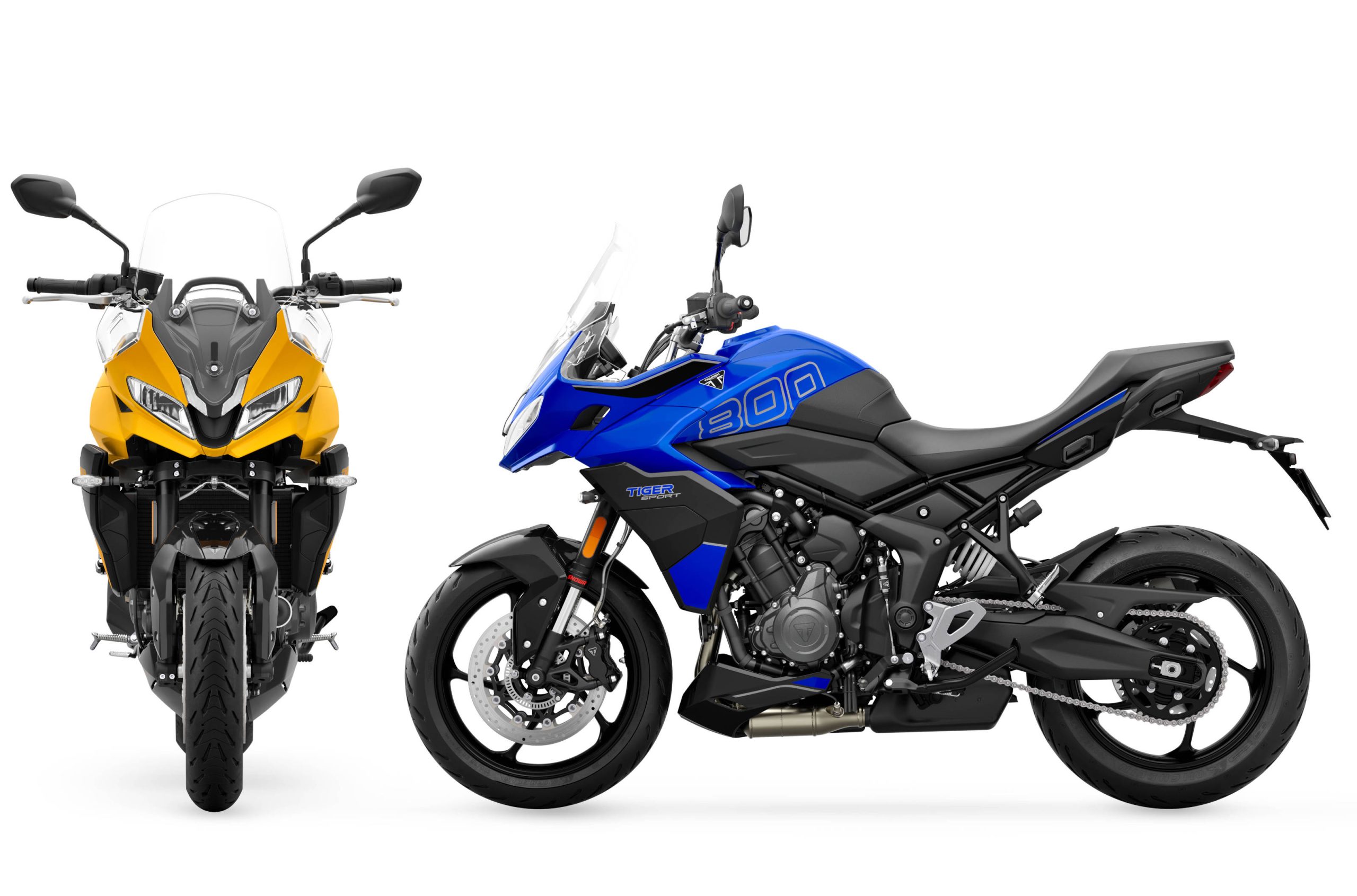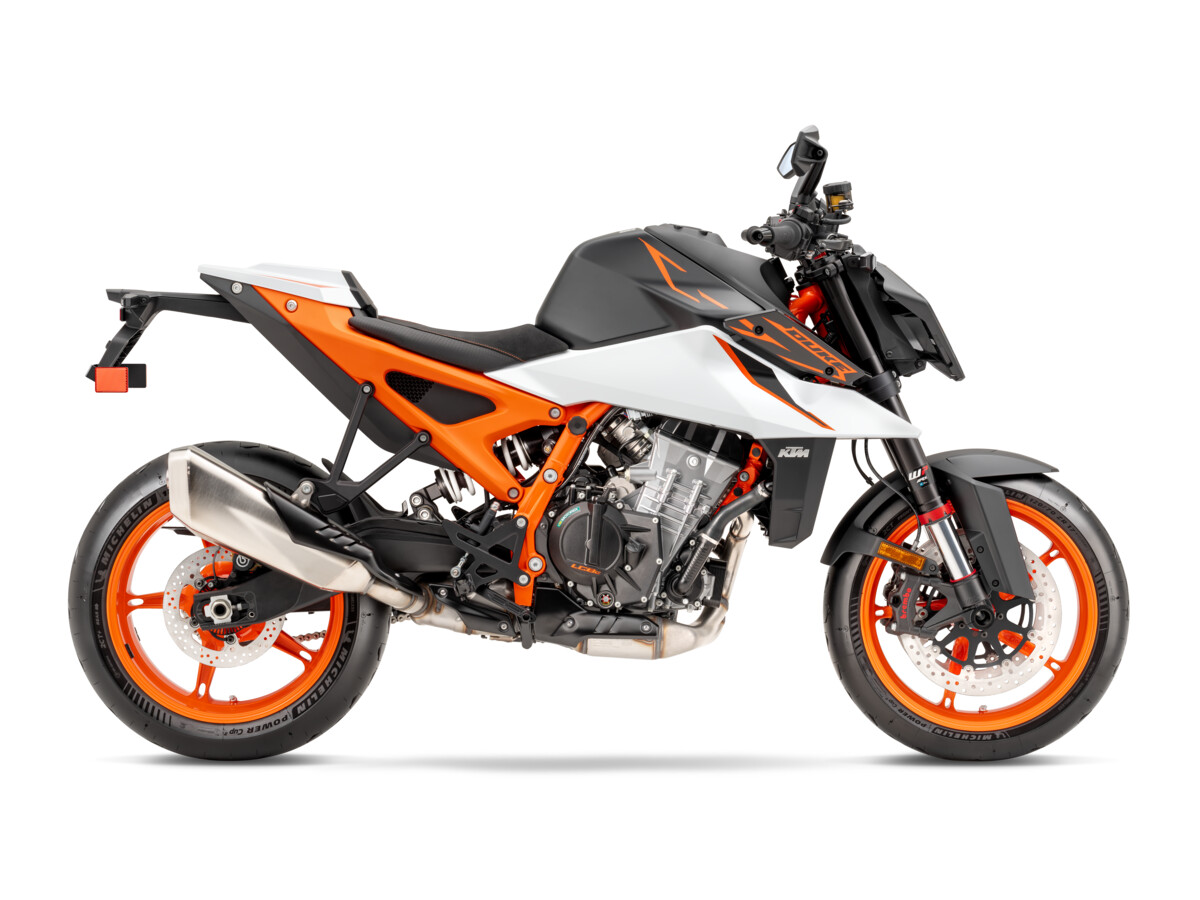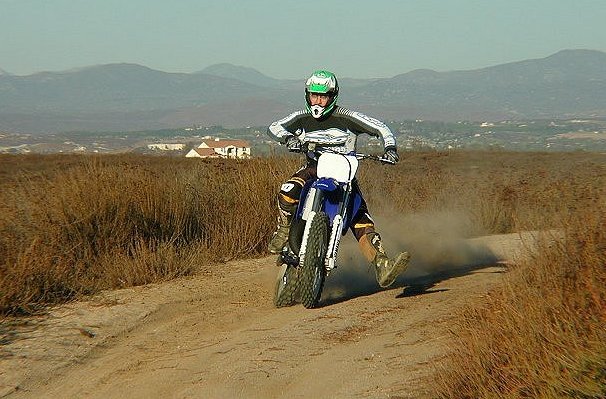
Yamaha’s YZ125 has been at the top of the 125cc two-stroke motocross class for at least four years now. The competition has been gaining every year, however, and Yamaha worked hard to make the 2001 YZ125 even better than its predecessors. Did they succeed? Let’s talk about the changes, first.
Beginning with the motor (the most important part of a 125cc machine), Yamaha wanted more power, without sacrificing the broad spread it has been known for. The biggest change is the addition of a 38mm carburetor (up from last years 36mm). Yamaha has been trying to make the 38mm carb work for the last couple of years, and finally succeeded. Yamaha wanted to retain good low end, but gain the top end shriek that can only come with a 38mm carb.
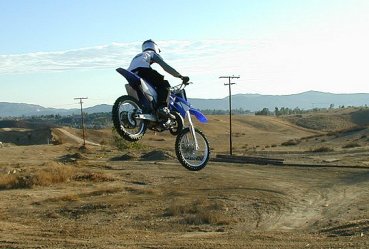
Coupled with the 38mm carb, Yamaha fine-tuned the cylinder head shape, port shape, and the power valve design.
In the chassis department, the frame and swingarm material were changed to a higher grade in order to provide equal rigidity and lower weight. The front and rear suspension received updates for 2001, as well, including new settings and new bump rubber characteristics at both ends (to improve the bottoming feeling).
Ranking right up there with the new carburetor, another significant change to the 2001 YZ125 (a change shared with all of the new YZs) is a new Nissin front brake master cylinder working in tandem with a larger, 250mm floating front disc. The goal with the front brake was increased power and feel.
So much for the technical highlights and changes. What is it like to ride the 2001 YZ125?
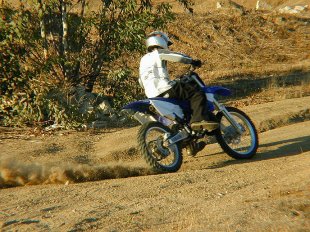
Yamaha’s changes to the YZ125 motor resulted in a very linear, torquey powerband with good peak horsepower. Riding the 2001 YZ125 back-to-back with most other 125s will have you convinced the YZ has a broader, easier to use, powerband, with decent peak horsepower that remains “hooked up”.
Overall, Yamaha did a very good job with the motor this year. The flywheel effect is just about perfect, allowing the bike to “hook up” well, but rev quickly, at the same time. This is a very refined power plant, and a great starting point for developing a peakier, more rev-happy power plant (if you are a pro). Remember, it is much easier to take a bike with a good, broad spread of power and increase over rev, than it is to take a high revving bike with no low end, and give it low end.
The handling of the YZ125 feels very familiar. Like past YZ125s, it combines the nimbleness you expect from a 125 with good straight line stability and balance. The suspension this year feels pretty stiff, at first. In fact, we felt that the fork required significant break-in time, after which it was reasonably plush and controlled — but still stiff enough for serious motocross work.
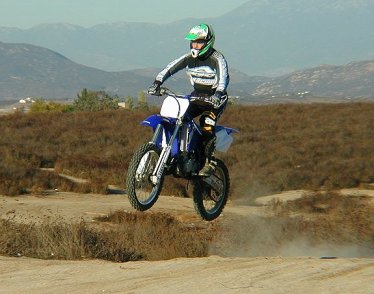
After dialing in the clickers, the rear shock felt good — combining reasonable bump absorption without getting mushy at higher speeds on a rough track.
The settings we ended up using on the fork and shock were as follows: Fork: compression – 14 out, rebound – 8 out; shock: compression – 8 out, rebound – 7 out.
The Yamaha also feels very well balanced in the air. It has an overall feeling of stability, and rarely surprises you by carrying the front wheel high off of jumps, for example. Basically, you feel like you can put the YZ125 where you want it.
Pros will want a little more high rpm power than the stock bike delivers, and, with a stock 38mm carburetor, this can be achieved much more cheaply than with last years bike, for instance. Take the money you would spend on boring the carburetor and put it into a reed cage, such as the Moto Tassinari V-Force II, which Team Yamaha of Troy has used on their YZ125s for the past couple of years. Couple this with a new pipe and, without expensive porting or carburetor boring, the YZ will undoubtedly make pro-level power with the necessary over-rev.
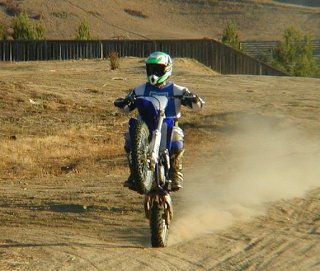
As is, the YZ125 is a great all-around motocross bike or trail bike. KTM’s Shane Watts has shown all of us that a 125 can be fun and competitive in off-road racing — not just in motocross. We trail rode the YZ125 extensively, and know of several riders who are looking at 125s for trail duty in light of Shane Watts’ success in the GNCC series. The YZ125 is a fantastic trail bike.
On the trail, the YZ’s engine characteristics really shine. It has great low end for a 125, is very tractable, and, once again, has good flywheel affect for hooking up on slippery surfaces. The overall stability of the bike is another plus on the trail, especially when you start out with a 125cc machine that is far more nimble than the heavier trail bikes you might be used to.
We put the YZ through some high speed trail riding, and it was an absolute blast to ride. After break-in, the suspension can be made reasonably plush for trail use, and, with a few clicks on compression and rebound, can return to competitive motocross settings.
Everywhere we rode, the new front brake worked great. Combining some real bite and power with good modulation and control, Yamaha has developed a front brake on par with Honda’s legendary front brake. A pro could race with this brake right out of the box. In fact, the only modification I would make would be to route a steel braided brake line Honda-style, without wrapping it under the caliper. This would provide even more power and feel — there are after-market kits for doing this.
With the 250mm front rotor, and the outstanding new master cylinder, a “big brake kit” is really unnecessary for anyone but the hardcore pro racer.
The YZ has excellent detailing, as well. From the “works-style”, adjustable clutch and refined clutch lever shape (courtesy of input from David Vuillemin), to the stock, Excel rims (the only Japanese manufacturer to feature these outstanding rims on their bike). All-in-all, the YZ125 represents a very refined and effective package for the motocrosser or the off-road racer/trail enthusiast.
As stated earlier, Yamaha also gave the racing pro a big head start with the 38mm carburetor and the vastly improved front brake. For a lot less money, the pro can modify this bike to achieve competitive power and braking characteristics.
The MSRP of the 2001 YZ125 is $4,999.00.

